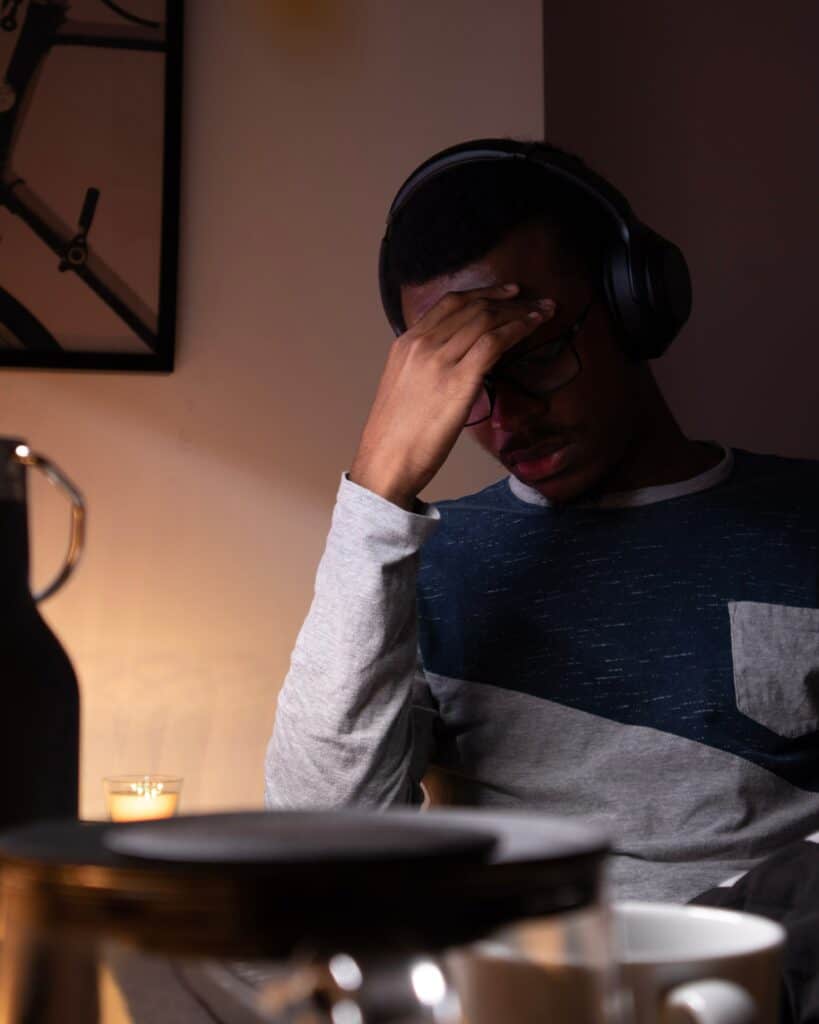Litigation & Dispute Resolution Solicitors
Do you have to go to court?
What is litigation & dispute resolution?
When legal disputes arise, it can seem that going to court is the only way to resolve the situation. However, litigation is expensive and it can be a long time before a Judge finally decides a matter.
You will work closely with the team at Mullis & Peake LLP to try and avoid the expense of court action whenever possible. You will be working with someone who has extensive experience in mediation, and have achieved excellent results using this process, saving clients considerable sums in legal fees.
Within our team, we are proud to have a solicitor-advocate, Holly Minney, who is qualified to appear in all Courts, including the Court of Appeal and Supreme Court. Therefore, we can take on private litigation matters at all levels, saving you money.
What legal dispute areas do we cover?
Legal Disputes Enquiry
Fill out the form and a member of our team will get in touch to discuss how we can help.
What is litigation & dispute resolution?
When legal disputes arise, it can seem that going to court is the only way to resolve the situation. However, litigation is expensive and it can be a long time before a Judge finally decides a matter.
You will work closely with the team at Mullis & Peake LLP to try and avoid the expense of court action whenever possible. You will be working with someone who has extensive experience in mediation, and have achieved excellent results using this process, saving clients considerable sums in legal fees.
Within our team, we are proud to have a solicitor-advocate, Holly Minney, who is qualified to appear in all Courts, including the Court of Appeal and Supreme Court. Therefore, we can take on private litigation matters at all levels, saving you money.
What legal dispute areas do we cover?
Neighbour disputes
Everyone wants to feel safe and comfortable in their own home, and a dispute with a neighbour can be deeply distressing.
Breach of contract
Whether you are buying or selling goods or services, the majority of transactions that you enter into, in your personal life, involve the making of a contract. Where one party to a contract fails to meet their obligations under the contract, this can result in a breach of contract.
Boundary Disputes
Disputes over the position of boundary lines are one of the most common forms of property dispute. They can cause huge stress because you are arguing over the most valuable thing you own – your land and property.

Commercial disputes
Commercial disputes can be technically complex, sensitive and stressful for all involved. If you are concerned about a commercial dispute it is important that you seek advice as quickly as possible.
Will disputes
Losing a loved one is one of the most difficult things any of us have to go through. The grieving process can be made all the more difficult when there is a dispute over a Will or someone is contesting a Will.
Employment disputes
Employment law is one of the key areas for concern for personal and business clients. You can expect to receive advice and guidance on a whole range of issues.

Personal injuries
Injuries arising from an accident can often lead to significant pain and suffering and can have a major impact on your ability to work, and on your financial situation.
Land & property disputes
For many of you, land and property will be the most expensive asset that you own, therefore any dispute arising from this can be a real concern.
Landlord disputes
The most common type of residential tenancy is an Assured Shorthold Tenancy (AST). Most private tenants will have an Assured Shorthold Tenancy.

Financial abuse
Financial and economic abuse can include having money or other property stolen, being defrauded, being put under pressure in relation to money or other property and having money or other property misused.
Enforcing court judgements
County Court Judgments (CCJ's) can create difficulties for the debtor in the future in obtaining credit. However, the obtaining of the CCJ will not guarantee you receive payment of the sums awarded to you. You may need to take action to enforce the judgment.

Service charge disputes
Service Charge disputes are one of the main causes of landlord and tenant disputes. Landlords are obliged by law to present the Service Charges to the Leaseholder in accordance with the terms of the lease and also make available to leaseholders the accounts which comprise the annual services charge.
Broken contracts
When considering whether a contract has been breached and assessing what options are available to you, we first need to ascertain the terms of the agreement entered into and the type of breach that has occurred.


Recent cases
- Acting on the behalf of shareholder for an unfair prejudice claim, a favourable settlement was achieved following mediation
- Settled a RTA against the MIB as the driver was uninsured where the Claimant suffered life changing leg injuries
- Acting on the behalf of a Landlord to forfeit the lease where the tenant has failed to pay rent.
- Acting on the behalf of a Tenant with a dispute with their Landlord over the assignment of the Lease and the landlord unreasonably withholding consent.
- Settled a claim on behalf of a child whom suffered injury at school due to the neglect of carers
- Acting for a Company with an application to court where they had filed incorrect documentation with companies house causing the companies register to be incorrectly amended.

The team covers all areas of dispute litigation & dispute resolution law.
Frequently asked questions
The dispute resolution process can mean many things, as there are a variety of ways in which a dispute can be resolved. It is generally a process of addressing the points of a dispute and seeking a way in which that dispute can be resolved.
It will depend on the method of dispute resolution that is undertaken as to what will happen at the hearing. The most known method of hearing is a court hearing. In most cases, these will take place in the civil courts before a judge, each party will give their evidence by way of witnesses and it will then be for the judge to decide the case.
The process will differ where you utilise methods of ADR such as mediation or arbitration.
Alternative dispute resolution (‘ADR‘) refers to ways of resolving disputes between parties that do not involve having a formal court hearing. It provides a dispute resolution mechanism outside of the courts. In some cases, a dispute or difference is submitted to an impartial individual(s), either for determination or to assist the parties in reaching a negotiated resolution of their dispute. It also includes negotiation between the parties and mediation.
Civil or private claims brought in a Court or Tribunal are determined by a judge on the balance of probabilities. This means that a judge will need to prefer your evidence over your opponent’s. In percentage terms, to tip the balance in your favour you need to reach 51%.
At the outset of the matter we will always review the evidence or information you have provided to us to give you an initial opinion on whether your case meets the threshold. If we are unable to provide an accurate assessment we will explain what further information is needed before we can give you an opinion. The merits will be regularly reviewed as it often changes throughout a case as evidence or information comes to light.
Generally speaking, you should avoid bringing or defending a claim where the prospects of success fall below 51%.
But the merits should not be the only factor taken into account when considering a claim. That is why we will also give you important information about costs and recovery of costs so that you can make an informed decision about whether it is economically viable to proceed with a claim. Likewise, we will discuss and explore the finances and solvency of the opposing party so that you can consider the prospects of recovery and their ability to pay any compensation you might recover.
The short answer is no. It is often better to avoid Court proceedings and in fact, the majority of disputes never end up at trial.
Even the Courts themselves promote traditional litigation as a last resort. If a judge feels that you have been premature in bringing a matter to Court you may be punished with a costs order where you have to make a contribution towards your opponent’s legal costs. It is therefore important to look at other options available to you.
Whenever you have a potential legal problem, we will help you find the most appropriate and cost effective way of resolving the issue. Often just speaking directly with your opponent about the problem can help narrow issues in dispute and achieve a resolution. Other times, mediation or arbitration may be more effective.
Occasionally, when all else fails, or where the matter is particularly urgent or important, Court proceedings can be the most appropriate forum for getting the outcome you are looking for.
Costs are an important consideration in any Court proceedings as it will help you conduct a cost-benefit analysis on whether it is likely to be worthwhile to either issue or defend a claim.
At the outset of the matter we will conduct a cost-benefit analysis with you and discuss the funding options available. This might include us acting under an existing legal expenses insurance policy where the insurers meet all of your legal fees, or perhaps agreeing a fixed-fee structure.
In every case you will be provided with a fee estimate based upon our experience in dealing with similar matters in the past. If we cannot give an estimate for the whole case, we will tell you the likely cost for the next stage.
If something unexpected happens and it appears that fees are going to increase we will contact you and inform you of any increase prior to carrying out further work. Likewise, if we spend less time on the matter than expected, the fees will be reduced accordingly.
The majority of cases do not lead to a final trial. The most common outcome is where a negotiated settlement is reached between the parties. In such circumstances, whether you recover your costs depends on the terms that you agree as part of any settlement deal.
If you have to take your case to Court and you win at trial, you are entitled to ask the Judge to make a ‘Costs Order’. The Judge will then decide whether one party should be ordered to make a contribution to another’s costs by way of a reimbursement.
The general rule in Court proceedings is that the winning party is entitled to ask for a Losts Order. However, this rule may not apply in certain circumstances, for example where value of the claim is low (cost orders are not routinely made for claims worth under £10,000) or there has been unreasonable conduct by the parties.
A costs order does not provide a full indemnity, but rather a contribution which is typically around 65% of the winning party’s actual outlay. Thereafter, the matter of recovering payment is separate and there is no certainty an opponent will have the ability to pay the amount it has been ordered to.
In any case, it pays to do investigations into the opposing party’s finances early on to gauge their ability to pay any compensation recovered and costs order made against them.
The amount of time it takes to conclude a matter will differ from case to case and can depend on how busy the Court is, the number of witnesses needed and the level of co-operation received from your opponent. Typically, a final trial is unlikely to be listed within 9 months from the date a claim is issued. It is not unusual to wait more than 12 months. Litigation is known to be slow and expensive so it is important to keep resolution options open at all times. For example, mediation could be held whilst parties await a trial date.
In all cases, we will work with you to achieve the best result for you in the circumstances. For our part, we will do what we can to finalise the matter as quickly as possible, although sometimes a delay might be in your interests for tactical reasons. We will also ensure that we respond to your telephone calls and correspondence promptly.
Here at Mullis & Peake LLP Solicitors, we are experts. What we do, we do well. However, we can also recognise where someone else will be better for you. We often use barristers to assist in cases where it can achieve a better result or save money for our clients. For example, if you have an upcoming final trial at Court, it may be better to use a barrister who will be a specially trained, experienced Court advocate.
Mullis & Peake have specialists in all types of legal disputes ready to help you. Contact us online today or call us on 01708 784000.
Alternatively, request a call back to have one of our experts contact you at a time that suits.





















